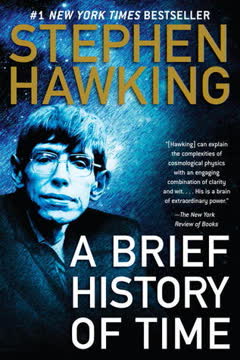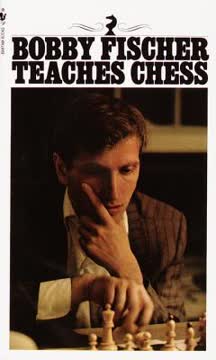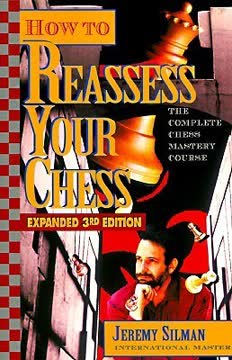Key Takeaways
1. Steinitz: The Father of Modern Chess Strategy
The provided document content consists solely of image filenames, preventing the extraction of a direct quote from the book's text.
Foundational principles. Wilhelm Steinitz revolutionized chess by introducing scientific, positional principles in an era dominated by romantic, attacking play. He emphasized concepts like pawn structure, piece coordination, and the accumulation of small advantages, laying the groundwork for modern strategic understanding.
Systematic approach. Steinitz developed a systematic way of evaluating positions, arguing that attack was only justified if one held a clear advantage. His theories provided players with a logical framework for decision-making, moving chess beyond mere tactical skirmishes towards a deeper, more rational game.
Enduring legacy. Despite initial resistance, Steinitz's ideas became the bedrock of positional play. Studying his games reveals the fundamental truths of chess strategy that remain relevant today, teaching players how to build solid positions and exploit subtle weaknesses.
2. Lasker: The Master of Chess Psychology and Pragmatism
The provided document content consists solely of image filenames, preventing the extraction of a direct quote from the book's text.
Beyond the board. Emanuel Lasker, the longest-reigning champion, understood that chess was not purely objective but also a battle of wills. He was a master of psychology, often playing moves that were not objectively best but exploited his opponent's weaknesses or discomfort.
Pragmatic genius. Lasker prioritized practical results over theoretical purity. He was incredibly adaptable, capable of playing in any style required to win, whether positional, tactical, or defensive. His games demonstrate the importance of flexibility and resourcefulness.
Fighting spirit. Lasker's tenacity and fighting spirit were legendary. He often managed to save seemingly lost positions through sheer willpower and clever counterplay. His career teaches the invaluable lesson that resilience and a never-give-up attitude are crucial for success at the highest level.
3. Capablanca: The Embodiment of Natural Chess Genius
The provided document content consists solely of image filenames, preventing the extraction of a direct quote from the book's text.
Effortless mastery. José Raúl Capablanca possessed an almost supernatural understanding of chess, playing with remarkable speed and accuracy. His games are characterized by crystal-clear positional judgment and elegant, simple solutions to complex problems.
Endgame virtuoso. Capablanca's endgame technique was unparalleled. He could convert small advantages with ruthless efficiency and often steered games towards simplified positions where his superior understanding shone brightest. Studying his endgames is essential for any aspiring player.
Universal appeal. Capablanca's style, while seemingly effortless, was built on profound positional truth. His games are often described as logical and harmonious, making them highly instructive and aesthetically pleasing. He demonstrated that deep understanding could manifest as apparent simplicity.
4. Alekhine: The Pioneer of Dynamic and Complex Play
The provided document content consists solely of image filenames, preventing the extraction of a direct quote from the book's text.
Unleashing dynamics. Alexander Alekhine brought a new level of dynamic complexity and aggression to the championship. He excelled in sharp, complicated positions, often sacrificing material for long-term initiative and creating intricate tactical webs that overwhelmed opponents.
Preparation and analysis. Alekhine was one of the first champions to emphasize deep opening preparation and rigorous analysis. His theoretical contributions pushed the boundaries of opening play and demonstrated the increasing importance of off-board work in achieving success.
Creative force. Alekhine's games are filled with stunning combinations and original ideas. He was a true artist of the chessboard, constantly seeking creative solutions and pushing the limits of what was thought possible. His legacy inspires players to explore the dynamic potential in every position.
5. Euwe: The Scholarly Champion and Brief Interlude
The provided document content consists solely of image filenames, preventing the extraction of a direct quote from the book's text.
Intellectual rigor. Max Euwe, a mathematician by profession, brought a highly logical and theoretical approach to chess. His strength lay in deep calculation and sound positional understanding, often outplaying opponents through precise, well-reasoned play rather than flashy tactics.
Preparation pays off. Euwe's victory over Alekhine in 1935 was a testament to meticulous preparation and hard work. He demonstrated that even a player without the natural genius of a Capablanca or the dynamic flair of an Alekhine could reach the pinnacle through dedication and scientific study.
A bridge between eras. Though his reign was short, Euwe represented a transition towards a more theoretically grounded era of chess. His emphasis on sound principles and thorough analysis foreshadowed the systematic approaches that would become dominant in the Soviet school.
6. Botvinnik: The Patriarch of the Soviet School and Methodical Preparation
The provided document content consists solely of image filenames, preventing the extraction of a direct quote from the book's text.
Systematic training. Mikhail Botvinnik was the architect of the dominant Soviet chess school. He introduced a rigorous, scientific approach to training, emphasizing physical fitness, psychological preparation, and deep, systematic analysis of openings and endgames.
Iron logic. Botvinnik's style was characterized by immense willpower, iron logic, and a relentless pursuit of objective truth on the board. He was a master of prophylaxis, constantly anticipating his opponent's plans and neutralizing them before they could develop.
Champion of consistency. Botvinnik's ability to regain the title twice after losing it demonstrated unparalleled resilience and adaptability. His career highlights the importance of continuous improvement, self-analysis, and the ability to learn from defeats.
7. Learning Positional Play from the Early Masters
The provided document content consists solely of image filenames, preventing the extraction of a direct quote from the book's text.
Building a foundation. The early champions, particularly Steinitz and Capablanca, provide invaluable lessons in positional chess. Their games teach the fundamental principles of pawn structure, piece placement, space advantage, and the strategic maneuvering required to gain a lasting edge.
Accumulating advantages. Studying their methods reveals how small, seemingly insignificant advantages can be patiently accumulated and converted into a decisive lead. This contrasts with purely tactical play and emphasizes the importance of understanding the long-term implications of each move.
Timeless principles. While opening theory evolves rapidly, the core positional concepts demonstrated by these masters remain constant. Mastering these principles provides a solid foundation that allows players to navigate complex positions and make sound decisions even in unfamiliar territory.
8. The Increasing Importance of Calculation and Dynamics
The provided document content consists solely of image filenames, preventing the extraction of a direct quote from the book's text.
Complexity grows. As chess theory advanced, the ability to calculate variations accurately and handle dynamic, unbalanced positions became increasingly crucial. Champions like Alekhine pushed the boundaries of tactical complexity, demonstrating the power of initiative and calculated risks.
Beyond static evaluation. Modern chess requires moving beyond static positional assessment to understand the dynamic potential of pieces and pawns. Studying the games of champions known for their dynamic play teaches how to create threats, exploit temporary advantages, and navigate sharp tactical battles.
Balancing skills. The evolution of the game shows that success at the highest level requires a blend of positional understanding and dynamic calculation. The great predecessors illustrate how these elements were integrated and emphasized differently across different eras.
9. Psychological Warfare at the Highest Level
The provided document content consists solely of image filenames, preventing the extraction of a direct quote from the book's text.
Mind games. Chess is not just about objective truth but also about outplaying the person across the board. Lasker, in particular, demonstrated the profound impact of psychological factors, using his understanding of human nature to gain an edge.
Handling pressure. Championship matches are intense psychological battles. The ability to manage nerves, maintain focus under pressure, and recover from setbacks is as important as technical skill. The predecessors faced immense pressure, and their resilience offers valuable lessons.
Willpower and confidence. A champion's belief in their ability and their sheer willpower can often be the deciding factor. Studying how the great players maintained their confidence and fought relentlessly, even when things were difficult, provides insight into the mental fortitude required for success.
10. The Value of Studying Chess History for Modern Players
The provided document content consists solely of image filenames, preventing the extraction of a direct quote from the book's text.
Understanding roots. Studying the games and ideas of past champions is crucial for understanding the evolution of chess. It reveals how current theories developed and provides context for modern opening lines and strategic concepts.
Timeless wisdom. While computers have changed analysis, the fundamental human understanding of chess developed by the great predecessors remains invaluable. Their games offer deep insights into strategy, tactics, and the practical aspects of play that are not always apparent from engine analysis alone.
Inspiration and perspective. Examining the careers and struggles of these legendary figures provides inspiration and perspective. It shows that even the greatest players faced challenges and defeats, and that dedication, hard work, and a passion for the game are universal keys to improvement.
Last updated:
Review Summary
Garry Kasparov on My Great Predecessors, Part 1 is widely praised as a masterpiece of chess literature. Readers appreciate Kasparov's in-depth analysis, historical insights, and personal reflections on former champions. The book is seen as a comprehensive study of chess development, offering valuable lessons for serious players. Many reviewers found it engaging and illuminating, though some found the detailed analysis challenging. Critics lauded Kasparov's writing style and his ability to blend technical analysis with psychological insights. Overall, it's considered an essential read for chess enthusiasts.
My Great Predecessors Series
Similar Books
Download PDF
Download EPUB
.epub digital book format is ideal for reading ebooks on phones, tablets, and e-readers.















